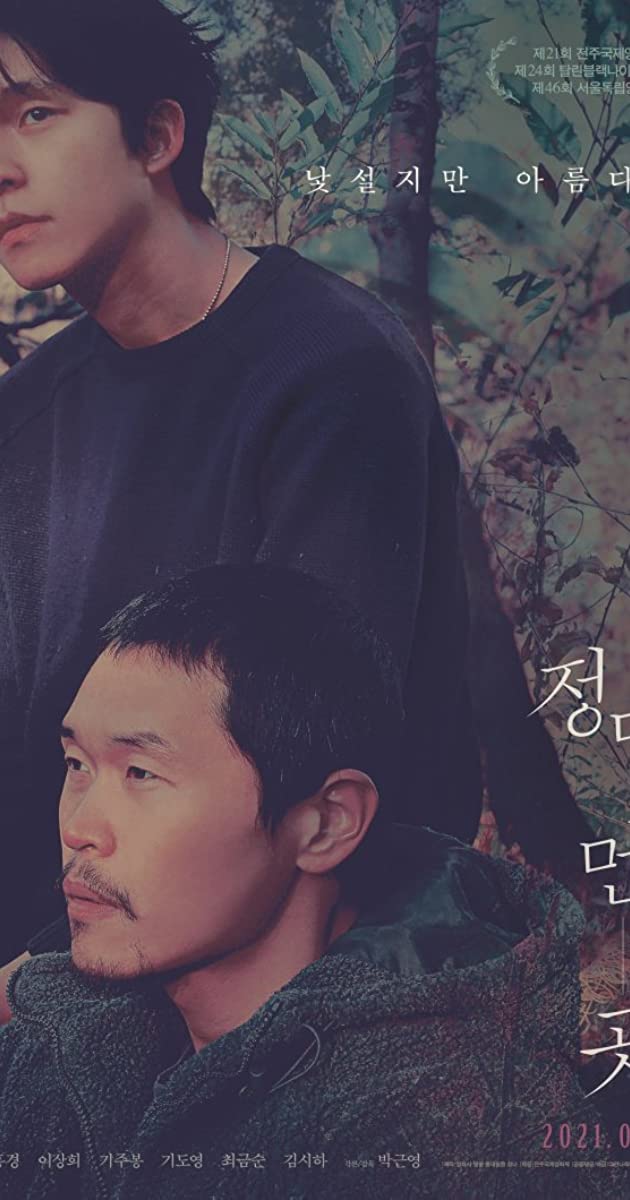
Lea and Andrew have been married for years. When Andrew dies, Lea’s friends surround her for comfort and support. As they gather to mourn their loss, these five women of various ages come to strengthen the ties that bind them.
You May Also Like

Young Amrita Goutham’s parents bring home a poor and homeless boy from the streets of Hyderabad, and adopt him. Shortly thereafter her life is shattered when her parents are killed by this boy and she goes to live with her brother, and his wife. Years later, she has grown up, and has a niece, Aishwarya. While being chased by some goons, a male named Aditya, comes to her rescue, and she falls in love with him. Amidst nation-wide kidnappings taking place allegedly at the hands of one Kaiser, she soon finds out that Aditya is none other than the one who killed her parents and may have returned back into her family’s life to kill all of them.

Halim has been married to Mina for a long time, with whom he runs a traditional caftan store in the medina (old town) of Salé, Morocco. The couple has always lived with Halim’s secret – his homosexuality – about which he has learned to keep quiet. However, Mina’s illness and the arrival of a young apprentice upsets this balance. United in their love, each will help the other face his fears.

Tora-san, an itinerant peddler who is thrown out of his father’s house twenty years before but reconnects with his aunt, uncle and sister Sakura. Tora wreaks some havoc in their lives, like getting drunk and silly at a marriage meeting and ruining Sakura’s chance to marry someone, as well as just being a real pain to those around him. There is a sentimental side to him also, and the best way to describe him is that he grows on you.

A coming-of-age film about two sixty-year-old best buddies who should have come-of-age a long time ago. When Marriage and Family Therapists, Dave and Joel, set off for a San Francisco Therapy Conference, with the intention of hiring Escorts as an escape from their own failing marriages, they wind up in the pathway of a scheming prostitute named Roxie. This encounter with Roxie will prove to be the biggest test of Dave and Joel’s friendship.

In the tradition of such classic films as “Miracle On 34th Street”, a hip, eccentric marketing genius teaches a widow and her son the miracle of Christmas.

Seoul, South Korea, September 21st, 2008. Eight citizens, the first to intervene as jurors in the country’s legal history, are randomly selected to examine a matricide case that appears to have been resolved due to the existence of apparently conclusive evidence.

Film opens with the mad rush of haphazard freedom as the concentration camps are liberated. Men are trying to grab food, change clothes, bury their tormentors they find alive. Then they are herded into other camps as the Allies try to devise policy to control the situation. A young poet who cannot quite find himself in this new situation, meets a headstrong Jewish young girl who wants him to run off with her, to the West. He cannot cope with her growing demands for affection, while still harboring the hatred for the Germans and disdain for his fellow men who quickly revert to petty enmities.

A sheep farmer whose remote and quiet life is disturbed by the arrival of both his lover and his twin sister.

An inspirational tale about the relationship between two Sioux Indian brothers living on the Pine Ridge Indian reservation.

The culturally isolated, nomadic Seburi people of western Japan are the subject of this tragedy about a few of the community’s members who especially experience difficulties as modern Japan encroaches on their world. The setting is World War II, and conflicts have already arisen when the military police come to take Seburi men away into the army. Still following their own customs that can be harsh at times, and are particularly cruel to women (women must give birth alone and unaided, a woman’s adultery is punished by burying her up to her neck in the earth and then leaving her for days), the Seburi are mainly treated with fear and animosity by the non-Seburi townspeople of the region. Along with the hardships arising from cultural clashes, nature’s own vagaries present other challenges to the Seburi — who still lived in tents until the 1950s. Winter avalanches and snowstorms cause as much havoc as the tensions engendered by the slow encroachment of the modern world.